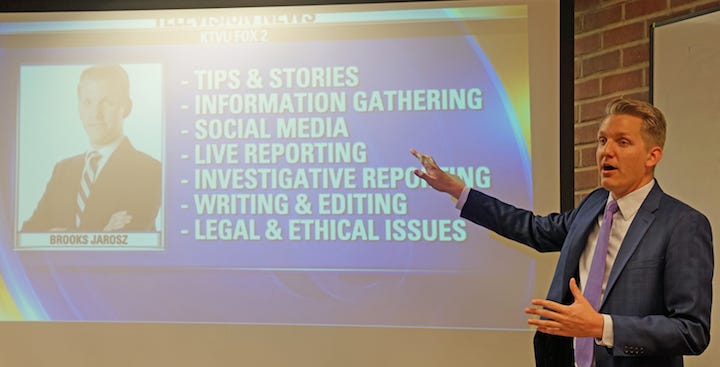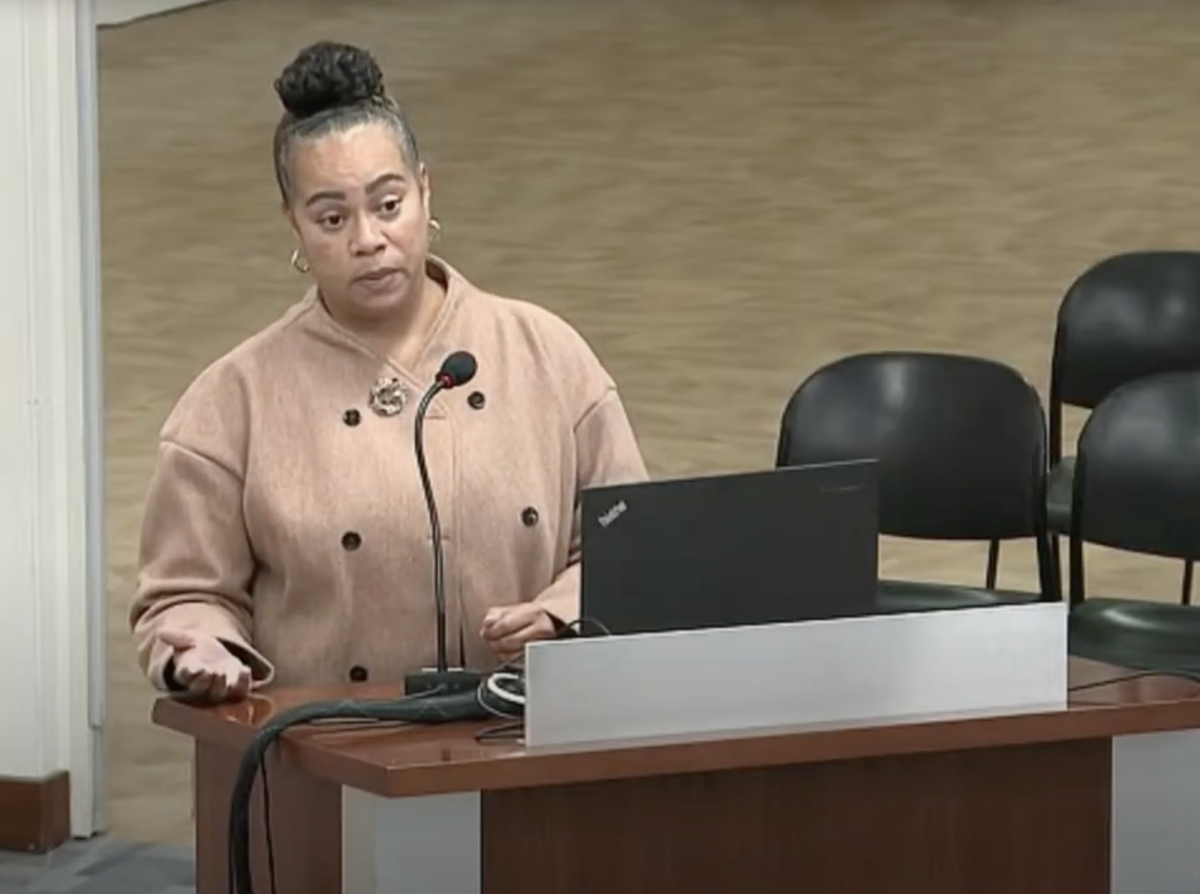by Michelle Snider
KTVU investigative reporter Brooks Jarosz schooled Laney’s Survey of Mass Media class April 10 on how to be a responsible investigative journalist in local communities.
At an early age, Jarosz knew he wanted to be a television news reporter. When he was a kid he wanted to be a weatherman.
His first experience in journalism was at St. John’s Jesuit High School station SJTV-4 in Toledo, Ohio. Jarosz helped transform SJTV-4 from morning announcements into a news operation called “Titan 4 News.” He later obtained a fellowship with the Brian Ross Investigative Unit in New York City at ABC News in 2008, an opportunity that inspired him to specialize in investigative journalism.

Jarosz later left a four-year legacy at WSYX ABC 6 / WTTE FOX 28 in Columbus, Ohio, after his investigations led to changes in law. Some changes included protection for Ohio firefighters from cancer, more speed limits in school zones and a statewide review of how county prosecutors and sheriffs spend taxpayer money.
In September, 2017, Jarosz moved from the Toledo area to the East Bay and started his new position at KTVU working on a segment called “2 Investigates.”
Jarosz, aspiring to be a 60 Minutes-style reporter, says he and his co-workers dig into the big stories that get more air time and have more depth than daily news updates.
Jarosz said the purpose of investigative reporting is to expose problems, to get laws changed, and to help people.
“We are our own specialized unit, and we do our own specialized stories throughout the year. They are much more in-depth, usually expose problems, or bring big issues to the forefront,” Jarosz said of the “2 Investigates” unit. “As media, we raise the questions and sometimes that lights a fire.”
When Jarosz is not on the air, he sends public records requests, looks at data, and documents everything so there is transparency in every investigation. He said television reporters spend little time on air compared to the time it takes to produce a segment.
When it comes to prioritizing each story, Jarosz and his unit focus on the most significant topics facing the community. The next important task is to focus on government corruption, misspent money, waste, and abuse.
Reporters like Jarosz receive many story tips by phone, letter, email, and talking face to face with people within the communities. Building sources and relationships with community members are essential in building any investigative story, Jarosz said
The job description he laid out in his presentation included modern-day methods of Social Media journalism. Facebook, Twitter, and Instagram are the three primary Social Media platforms that he uses. “Social Media has dramatically changed how we operate as reporters and journalists,” Jarosz said. “We have to to keep pushing out content almost hourly because people are constantly looking.”
Jarosz reflected on the importance in respecting his audience’s different views when posting on Social Media.
“You have to be sensitive to everyone else’s opinion before your own. You hear about it every day: journalists or people who are in the public eye saying things that are not appropriate.” He said he has to stop and re-read every word he writes before posting. “I don’t want to be one of those people who are spoofed on a late-night show for tweeting something that I shouldn’t.”
In the Mass Media class the topic of “Fake News” came up. Jarosz emphasized that journalists are not the only ones that need to be careful about sourcing information. He explained there are a lot of people who want to mislead the public, so the public needs to check all information before believing it as fact.
“Now, more than ever, the want and need for holding people in powerful positions accountable is important,” Jarosz said.
As for what kind of job opportunities may be available for someone interested in news reporting, Jarosz says the most significant media move right now is in digital media. Reporting like Vice News is big right now, so the future of news may be packaged and presented differently. There are more jobs in digital writing and video than television.
Have a tip for Brooks?
Brooks Jarosz
KTVU Fox 2
510–874–0500
[email protected]
@BrooksKTVU
Michelle Snider is a Laney Tower staff writer.

























